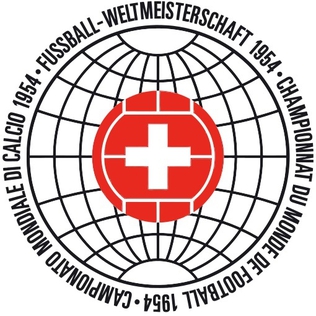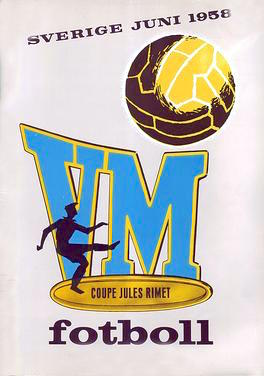Table
| Pos | Team | Pld | W | D | L | GF | GA | GR | Pts | Qualification | | | | |
|---|---|---|---|---|---|---|---|---|---|---|---|---|---|---|
| 1 | 4 | 3 | 1 | 0 | 14 | 3 | 4.667 | 7 | Qualification to 1958 FIFA World Cup | — | 3–2 | 7–0 | ||
| 2 | 4 | 2 | 1 | 1 | 12 | 7 | 1.714 | 5 | 1–1 | — | 4–1 | |||
| 3 | 4 | 0 | 0 | 4 | 3 | 19 | 0.158 | 0 | 0–3 | 2–5 | — |
The three teams in this group played against each other on a home-and-away basis. The group winner Austria qualified for the sixth FIFA World Cup held in Sweden.
| Pos | Team | Pld | W | D | L | GF | GA | GR | Pts | Qualification | | | | |
|---|---|---|---|---|---|---|---|---|---|---|---|---|---|---|
| 1 | 4 | 3 | 1 | 0 | 14 | 3 | 4.667 | 7 | Qualification to 1958 FIFA World Cup | — | 3–2 | 7–0 | ||
| 2 | 4 | 2 | 1 | 1 | 12 | 7 | 1.714 | 5 | 1–1 | — | 4–1 | |||
| 3 | 4 | 0 | 0 | 4 | 3 | 19 | 0.158 | 0 | 0–3 | 2–5 | — |
| Austria | 7 – 0 | |
|---|---|---|
| Hanappi Walzhofer Wagner Kozlicek Haummer | Report |
| Netherlands | 4 – 1 | |
|---|---|---|
| Van der Gijp Dillen Brusselers | Report | Halsdorf |
| Austria | 3 – 2 | |
|---|---|---|
| Koller Buzek Stotz | Report | Van Melis |
| Luxembourg | 2 – 5 | |
|---|---|---|
| Fiedler Letsch | Report | Lenstra Wilkes Van Melis Rijvers |
| Luxembourg | 0 – 3 | |
|---|---|---|
| Report | Dienst Buzek Senekowitsch |

The 2002 FIFA World Cup, also branded as Korea/Japan 2002, was the 17th FIFA World Cup, the quadrennial football world championship for men's national teams organized by FIFA. It was held from 31 May to 30 June 2002 at sites in South Korea and Japan, with its final match hosted by Japan at International Stadium in Yokohama. During the opening ceremony, the championship was declared opened by President of South Korea Kim Dae-jung.

The 1954 FIFA World Cup was the fifth edition of the FIFA World Cup, the quadrennial international football tournament for senior men's national teams of the nations affiliated to FIFA. It was held in Switzerland from 16 June to 4 July. Switzerland was selected as the host country in July 1946. At the tournament, several all-time records for goal-scoring were set, including the highest average number of goals scored per game. The tournament was won by West Germany, who defeated tournament favourites Hungary 3–2 in the final for their first World Cup title. Uruguay the defending champions were eliminated by Hungary and would lose to Austria in the third-place match.

The 1958 FIFA World Cup was the sixth FIFA World Cup, a quadrennial football tournament for men's senior national teams. It was played in Sweden from 8 to 29 June 1958. It was the first FIFA World Cup to be played in a Nordic country.

The 1962 FIFA World Cup was the seventh edition of the FIFA World Cup, the quadrennial international football championship for senior men's national teams. It was held from 30 May to 17 June 1962 in Chile. The qualification rounds took place between August 1960 and December 1961, with 56 teams entering from six confederations, and fourteen qualifying for the finals tournament alongside Chile, the hosts, and Brazil, the defending champions.

The 1966 FIFA World Cup was the eighth FIFA World Cup, a quadrennial football tournament for men's senior national teams. It was played in England from 11 to 30 July 1966. England defeated West Germany 4–2 in the final to win their first ever World Cup title. The final was level at 2–2 after 90 minutes and went to extra time, when Geoff Hurst scored two goals to complete his hat-trick, the first to be scored in a men's World Cup final. England were the fifth nation to win the event, and the third host nation to win after Uruguay in 1930 and Italy in 1934. Two time reigning champions Brazil failed to get past the group stages as they were defeated by Hungary and Portugal. It was the first time that defending champions were eliminated in the group stages after Italy in 1950. This would not occur again until 36 years later. It was opened by Queen Elizabeth II during the opening ceremony.

The 1970 FIFA World Cup was the ninth edition of the FIFA World Cup, the quadrennial international football championship for men's senior national teams. Held from 31 May to 21 June in Mexico, it was the first World Cup tournament held outside Europe and South America, and also the first held in North America. Teams representing 75 nations from all six populated continents entered the competition, and its qualification rounds began in May 1968. Fourteen teams qualified from this process to join host nation Mexico and defending champions England in the 16-team final tournament. El Salvador, Israel and Morocco made their debut appearances at the final stage.

The 1974 FIFA World Cup was the tenth FIFA World Cup, a quadrennial football tournament for men's senior national teams, and was played in West Germany between 13 June and 7 July. The tournament marked the first time that the current trophy, the FIFA World Cup Trophy, created by the Italian sculptor Silvio Gazzaniga, was awarded. The previous trophy, the Jules Rimet Trophy, had been won for the third time by Brazil in 1970 and awarded permanently to the Brazilians. This was the first out of three World Cups to feature two rounds of group stages.

The 1982 FIFA World Cup was the 12th FIFA World Cup, a quadrennial football tournament for men's senior national teams, and was played in Spain from 13 June to 11 July 1982. The tournament was won by Italy, who defeated West Germany 3–1 in the final held in the Santiago Bernabéu Stadium in the capital, Madrid. It was Italy's third World Cup title, but their first since 1938. The defending champions, Argentina, were eliminated in the second round. Algeria, Cameroon, Honduras, Kuwait and New Zealand made their first appearances in the finals.

The 1986 FIFA World Cup was the 13th FIFA World Cup, a quadrennial football tournament for men's senior national teams. It was played in Mexico from 31 May to 29 June 1986. The tournament was the second to feature a 24-team format. Colombia had been originally chosen to host the competition by FIFA but, largely due to economic reasons, was not able to do so, and resigned in November 1982. Mexico was selected as the new host in May 1983, and became the first country to host the World Cup more than once, after previously hosting the 1970 edition.
A total of 37 teams entered the 1954 FIFA World Cup qualification rounds, competing for a total of 16 spots in the final tournament. Switzerland, as the hosts, and Uruguay, as the defending champions, qualified automatically, leaving 14 spots open for competition.
The three teams in this group played against each other on a home-and-away basis. The group winner England qualified for the sixth FIFA World Cup held in Sweden.
The three teams in this group played against each other on a home-and-away basis. The group winner France qualified for the sixth FIFA World Cup held in Sweden.
The three teams in this group played against each other on a home-and-away basis. The group winner Scotland qualified for the sixth FIFA World Cup held in Sweden.
The three teams in this group played against each other on a home-and-away basis. The group winner Hungary qualified for the sixth FIFA World Cup held in Sweden.
The three teams in this group played against each other on a home-and-away basis. The group winner Czechoslovakia qualified for the sixth FIFA World Cup held in Sweden.
The three teams in this group played against each other on a home-and-away basis. The group winner Northern Ireland qualified for the sixth FIFA World Cup held in Sweden.
The three teams in this group played against each other on a home-and-away basis. The group winner Yugoslavia qualified for the 1958 FIFA World Cup held in Sweden.
The three teams in this group played against each other on a home-and-away basis. Poland and the Soviet Union finished level on points, a play-off on neutral ground was played to decide who would qualify. The winner Soviet Union qualified for the sixth FIFA World Cup held in Sweden.
Russia has participated in 4 FIFA World Cups since its independence in December 1991. The Russian Federation played their first international match against Mexico on 16 August 1992, winning 2–0. Their first participation in a World Cup was in the United States in 1994 where they achieved 18th place.
The 1958 FIFA World Cup qualification for North, Central America and the Caribbean serves as the preliminary tournament for the region. Six teams entered the tournament to compete for one place in the final tournament.